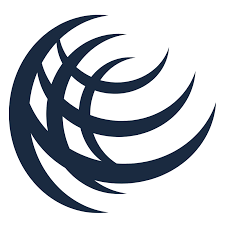Peru’s oil spill raises corporate accountability questions
An oil spill off the coast of Peru has been devastating for wildlife, tourism and the livelihoods of small-scale fishers. It’s raised questions about corporate accountability as Spanish oil giant Repsol, owner of the refinery where the disaster happened, is accused of acting slowly and failing to take full responsibility. The catastrophe, the latest in a series of oil spills, has also shed light on Peru’s repeated failures to apply its environmental laws. It begs the question of why, if fossil fuel companies can’t be trusted to protect the sites they profit from, anyone should anyone take their greenwashing claims seriously.
At least 30 per cent of the oil spilled into Peru’s waters in January is likely never to be cleaned up, according to environmental campaigners. But more than two months on, that isn’t the only lingering problem.
On 15 January, almost two million litres of crude oil poured into the Pacific Ocean off the coast of the Ventanilla district, north of Peru’s capital, Lima. The huge spill came as a tanker unloaded crude oil via an underwater pipeline to a refinery owned by Spanish oil company Repsol. The impact has been devastating for the region’s wildlife, including in three protected marine reserves, and for its tourist economy, with 25 beaches affected.
But perhaps the hardest hit are the small-scale fishers and others in the industry that sustains the coastal region’s most famous dish, ceviche. Thousands of people lost their livelihoods overnight. With oil making its way to the seabed, the impacts will likely be long-term.
The Peruvian government declared this the country’s worst ecological disaster. The Prosecutor’s Office is carrying out an investigation; while this is underway four senior Repsol officials have been banned from leaving Peru. The cost of the clean-up is estimated to stand at US$65 million.
Oil company slow to respond
But Repsol has been slow to take responsibility. It first said the leak was extremely small, until its true extent became impossible to conceal. It tried to blame the disaster on the tsunami triggered by the eruption of a volcano in Tonga, which seemed an attempt to shift blame onto the government for not issuing a tsunami warning. This however evaded the question of why the company had chosen to continue operating when the existence of the tsunami was common knowledge. In any case, many experts disagreed that the waves that day had been worse than usual. The company subsequently sought to blame the Italian-owned tanker for the spill.
However, photographs appeared to show that the ruptured pipeline was rusted, suggesting a failure to carry out basic inspections and maintenance of three decades-old infrastructure. The company was slow to admit that the pipeline had broken apart rather than only fractured. The government accuses Repsol of not acting quickly enough in a context where immediate action can make a crucial difference: the company did not activate its contingency plan until the day after the spill.
Repsol is now providing financial support to thousands left without an income – but it took almost two months of negotiations to get it to agree to this. Fishers have protested that the amounts of financial support are inadequate, and many will struggle to access this aid since they work in the informal economy and so lack the required paperwork.
Instead of fishing, many of them have been hired by Repsol in the clean-up operation, but claim they have not been given proper training or protection for this hazardous work. This is a concern because immediate health impacts were experienced by those in early clean-up crews, who were not provided the minimal equipment needed.
A history of impunity
This is not remotely the first oil spill in Peru’s history. People whose livelihoods depend on the ocean have long reported these, pointing to poor maintenance. They accuse the government and oil companies of not taking their complaints seriously, particularly when leaks occur much further from the capital than the latest disaster.
It’s not even the first time Repsol has been fined for spills: this has happened at least three times before in Peru and numerous times elsewhere. It should expect a much bigger fine this time, but it will still be small change, given that in February the company posted a profit of around US$2.78 billion.
Peru’s laws are clear that Repsol must be held responsible for the catastrophe. The country has strong environmental protection laws – but these largely exist only on paper. A culture of impunity exists for environmental harm. Successive governments have clung to an extractivist model of economic development, with extraction led by foreign companies. This approach has fuelled opaque and corrupt relationships between politicians and businesses that minimise regulation and shield companies from accountability. Communities that protest against harmful projects and environmental impacts – such as fishers alerting to oil spills – are either ignored or vilified as opponents of development.
For almost a decade, environmental requirements have been reduced in Peru; it is necessary to walk back that path.
Current left-wing President Pedro Castillo narrowly won the 2021 election on a promise of change, including commitments to clean up corruption and make extractive companies contribute more, but he’s struggled to make much progress amidst the country’s fragmented and polarised politics and a right-wing backlash. His government has also been accused of not responding adequately to the crisis. Peru has still not ratified the Escazú Agreement, an environmental rights treaty for Latin America and the Caribbean, which business interests have strongly lobbied against.
People did what they could, volunteering to try to clean up the beaches. They also came out to protest, calling out what happened as ecocide. Fishers camped outside the refinery in protest and environmental activists took the backlash to Repsol’s headquarters, demanding that the company not just clean up the oil, but take full responsibility, make good all the damage caused and adopt the highest possible standards to prevent future disasters.
Voices from the frontline
Juan Carlos Sueiro is Director of Fisheries at Oceana, the world’s largest international organisation dedicated to protecting and restoring the world’s oceans.
Due to its magnitude and visibility, it was the worst ecological disaster in Peru’s recent history. It occurred in an artisanal fishing zone, with protected areas and important seasonal economic activity. It is the largest spill we have ever had.
There has been great environmental damage. The spill has impacted on marine fauna, affecting animals such as sea lions, otters, penguins and birds. Many have been stained with oil and their lives are at risk.
For communities in the area, the greatest concern is economic. These are mostly low-income people engaged in artisanal fishing. It is now impossible to fish in Ancón or Chancay, and it is difficult to know when it will be possible to do so, because oil has a much longer degradation time when it settles on the seabed.
We also believe there is an important impact on tourist activity: for the nine million inhabitants of Lima and the three million living a little further north, these beaches are the closest place to spend the summer, and the spill has cut short the summer season.
Unfortunately, we have seen little progress in terms of Repsol taking responsibility for recovering the ecosystem. The company’s reaction was very slow, which is worrying because the first 24 hours following this kind of accident are key, as the oil film becomes very thin and expands a lot. It was only almost 20 days later that more sophisticated equipment was brought in to address the problem.
There is little transparency in the investigation. It is still not clear whether Repsol has handed over the equipment that was underwater in order to investigate and determine what happened on the day of the spill.
This lack of transparency is symptomatic of the way the Peruvian state operates. In this case, we have environmental structures, legislation and procedures on paper, but not in reality. The opacity of information is intended to hide this discrepancy.
Lack of accountability is a longstanding concern for the communities in these areas, and the fact that their demands have been systematically ignored is a symptom of Peru’s strong centralism. Artisanal fishers in the north have been warning about this situation for several years and there has been no meaningful response.
For us it is very clear: Repsol must publicly assume clearly defined responsibilities.
This situation has encouraged civil society to prioritise the search for solutions. For almost a decade, environmental requirements have been reduced in Peru; it is necessary to walk back that path. Peru is engaged in fishing, mining and other activities for which regulations have been relaxed, when they should have been strengthened. The very low environmental capacity of the state and the poor response of companies to disasters clearly shows their inadequacy. Peru suffers from a major crisis of governance and respect for the rule of law.
It would also be important to deepen the discussion about the energy mix we have and how to change it by turning towards the renewable resources that are available to us.
This is an edited extract of our conversation with Juan Carlos. Read the full interview here.
Another reason for renewables
Fossil fuel companies are riding high at the moment as oil and gas prices soar, including as a consequence of Russia’s invasion of Ukraine. Seemingly each week brings news that another such company has posted record profits. The power that comes with their immense wealth should bring the highest standards of accountability. But time after time, fossil fuel companies show they can’t be trusted to use the fortunes they make responsibly.
They’re not spending the profits on developing serious alternatives to their business model of climate harm but on greenwash – something Repsol has been accused of. And events like Peru’s oil spill suggest they’re not even using their riches to invest in the essential maintenance required to minimise their environmental impact. However, there’s always plenty of money to lobby for the weakest possible regulation.
The people now suffering the worst impacts of the oil spill – seeing their livelihoods destroyed, coastline they have lived on all their lives blighted, risking long-term health impacts – have always got the least out of the extraction happening on their doorstep. However much Repsol cleans up the current mess, that reality isn’t going to change until the extractivist model is replaced. There are many reasons to end dependency on fossil fuels and switch to renewable energies. Peru has given a bleak reminder of yet another one of them.
OUR CALLS FOR ACTION
-
Repsol should take full responsibility for the disaster and commit to fully funding not just the immediate clean-up but long-term recovery.
-
The government of Peru should strengthen its environmental regulations, ratify the Escazú Agreement and commit to more stringent implementation of its existing legislation.
-
International civil society should support Peru’s fishers’ movement in their struggle for justice.
Cover photo by REUTERS/Pilar Olivares via Gallo Images





